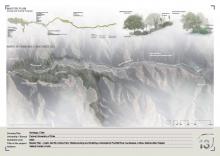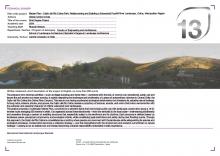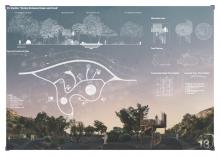


The Río Colina (Colina River), a silent witness to popular leisure activities and its subsequent transformations, now faces progres sive degradation due to water scarcity, informal recreational use, gravel extraction, and urban–rural pressure. This has devalued a fluvial landscape historically tiedlinked to collectivecommunity memory—especially in El Carvajalino, where remnants of leisure practices persist in precarious conditions. This project asks: how can we revalue this sclerophyll river landscape –typical of central Chile– in a peri-urban context, balancing ecological protection with conscious enjoyment? Landscape design is proposed as a tool to reconnect culture, territory, and nature. The project is structured through a non-linear museographic script that transform neglect into a narrative device and memory into a sensory experience—through walking, tou ching water, and rediscovering paststraces. It activates the urban–rural–natural interface, re-signifies and repurposes abandoned infrastructure, and formalizes informal recreational use by creating a democratic, safe, and ecologically coherent public space. The park is conceived as an open system of relationships—where water, land, bodies, and traditions interact freely. In doing so, the project reactivates the landscape’s capacity to produce collective memory, recognizing the life paths, childhoods, and practices of local communities. It becomes a space of intergenerational encounter that strengthens local identity, belonging, and sustainability.








